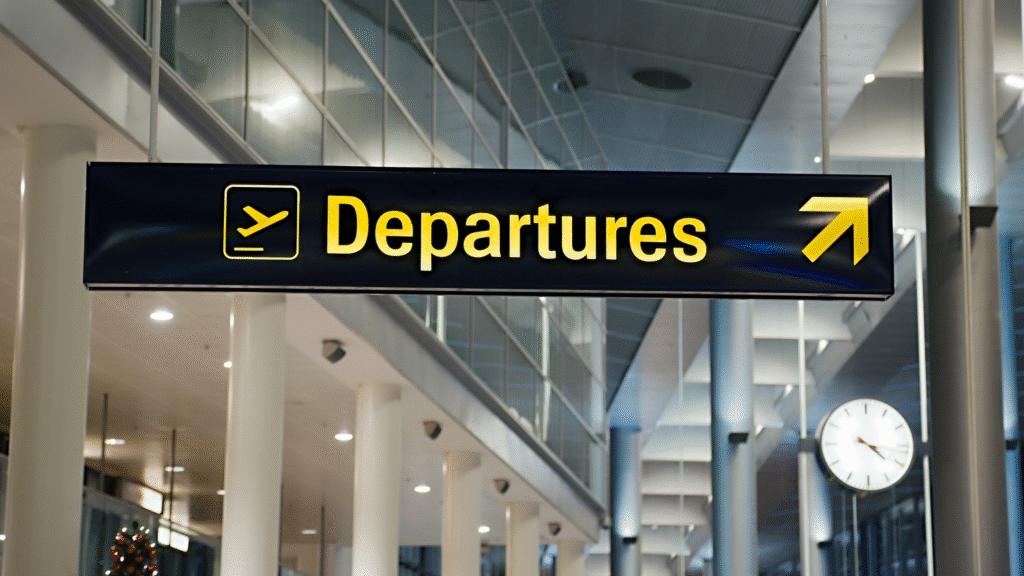In September 2025, an airport cyber attack caused widespread disruption across Europe. Check-in systems at Heathrow, Brussels, Berlin and other major hubs went offline, forcing airlines to process passengers manually. The result: long queues, flight delays, and cancellations that impacted thousands of travellers. In this article we explore this cyber-attack in more detail and look at why cyber-security is every business’s responsibility.

The Cause of the Airport Cyber Attack
While investigations continue, reports suggest the incident targeted a widely used check-in software platform. Full attribution is not yet confirmed, but one fact is clear: the airport cyber-attack demonstrates how dependent modern operations are on digital systems and how quickly disruption spreads when those systems fail.
The Impact of the Airport Cyber Attack
The consequences of the cyber incident stretched far beyond inconvenience for passengers:
- Operational disruption – Hundreds of flights delayed or cancelled, with airports forced into emergency procedures.
- Financial consequences – Airlines faced compensation claims; airports incurred overtime and recovery costs.
- Reputation damage – Trust is fragile in aviation, and downtime erodes customer confidence quickly.
- Regulatory scrutiny – Aviation is critical infrastructure, so cyber incidents attract attention from governments and regulators.
Even though flight safety systems were unaffected, the business disruption was extensive and costly.
Cyber Threats Are on the Rise
The cyber-attack on airports is part of a growing global trend:
- Third-party and supply chain risk – A single vendor compromise can cascade across multiple organisations.
- More frequent and severe incidents – From ransomware to denial-of-service attacks, the volume and impact of threats are accelerating.
- Regulatory pressure – Frameworks like NIS2 in Europe raise the bar for resilience, reporting, and accountability.
No business is immune. Whether you operate in aviation, healthcare, construction, or finance, the risks are real and rising.
How Businesses Can Protect Themselves
Every organisation has a duty to strengthen its defences and safeguard its stakeholders. The key lessons are:
| Focus Area | What to Do | Why It Matters |
| Assessment & Mapping | Identify critical systems, dependencies, and suppliers. | You can’t protect what you don’t know mapping highlights single points of failure. |
| Vendor & Third-Party Security | Review supplier cybersecurity standards, contracts, and SLAs. | Supply chain attacks are rising; vendor security directly impacts your business. |
| Resilience & Redundancy | Maintain tested backups and manual processes. | Keeps operations moving if automated systems go offline. |
| Continuous Monitoring | Deploy threat detection and managed response solutions. | Early detection reduces the cost and scale of breaches. |
| Security Awareness Training | Educate staff on phishing, social engineering, and incident response. | Human error remains the most common entry point for attackers. |
| Incident Response Planning | Create and test playbooks for crisis scenarios. | Clear steps reduce downtime and reputational damage. |
Cybersecurity is no longer just a technical issue, it is a core business responsibility.
Final Word on Airport Cyber Attack
The recent airport cyber-attack is a wake-up call. Modern businesses rely on complex digital ecosystems where one weak link can trigger widespread disruption. The question is no longer if an attack will happen, but when and whether your business will be prepared.
At Amicis Group, we deliver enterprise-grade cybersecurity to help organisations build resilience and stay protected. From incident response and monitoring to compliance and managed security services, we ensure businesses can face today’s threats with confidence. Please explore our home page and our CyberGuard page for more information.
Call us today on 0333 305 5348 or use our Contact Us page to learn more about Amicis Group’s tailored support packages and how we can support your organisation.
